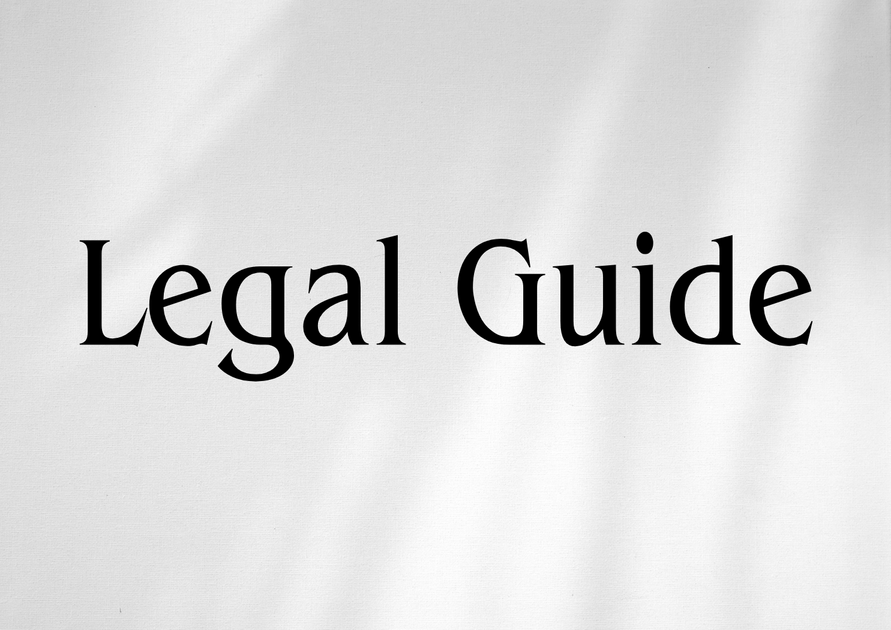Introduction: The Strategic Significance of Cross-Border Disputes with Qatari Companies in the UAE
In the ever-evolving business landscape of the Gulf region, cross-border commercial relationships between UAE and Qatari companies continue to grow in complexity and volume. Recent geopolitical shifts, economic reforms, and legal updates—particularly under UAE law 2025 updates—have directly impacted how such disputes are managed. For UAE-based businesses, executives, and legal counsel, understanding the framework governing cross-border business disputes with Qatari companies is crucial to safeguard commercial interests, maintain compliance, and drive strategic growth.
This article provides a comprehensive, consultancy-grade exploration of legal, regulatory, and procedural aspects surrounding cross-border disputes involving Qatari entities. By dissecting the relevant federal decrees, ministerial guidelines, and practical enforcement mechanisms, this guide aims to inform professional stakeholders about the latest legal provisions, emerging risks, tactical dispute resolution strategies, and best compliance practices when dealing with business disputes that span the UAE-Qatar corridor.
Table of Contents
- Overview of Legal Framework Governing Cross-Border UAE-Qatar Disputes
- Key UAE Law 2025 Updates Impacting Cross-Border Dispute Resolution
- Jurisdictional Issues and Enforcement of Judgments
- Role of Arbitration in Resolving Cross-Border Disputes
- Case Studies and Hypothetical Scenarios
- Risks of Non-Compliance and Legal Consequences for UAE-Based Entities
- Compliance Strategies and Proactive Dispute Management
- Conclusion: Shaping the Future of UAE-Qatar Commercial Dispute Resolution
Overview of Legal Framework Governing Cross-Border UAE-Qatar Disputes
1.1 The Legal Backdrop: UAE-Qatar Economic Relations
Commercial activity between UAE and Qatari entities has surged in recent years, especially after the restoration of diplomatic ties in 2021 and relaxation of regional restrictions. As both countries are members of the Gulf Cooperation Council (GCC), their business relations are underpinned by a mix of bilateral treaties, GCC conventions, and respective national laws.
1.2 Core Legal Instruments Governing Business Disputes
| Instrument | Scope | Relevance |
|---|---|---|
| UAE Federal Law No. 11 of 1992 (Civil Procedure Law, as amended by Federal Decree-Law No. 42 of 2022 & 2023) | Civil and commercial litigation procedure | Prescribes jurisdiction, evidence, enforceability of judgments across borders |
| GCC Convention for the Execution of Judgments, Delegations and Judicial Notifications (Riyadh Convention) | Mutual recognition and execution of judgments between GCC states | Basis for reciprocal enforcement of UAE and Qatari court orders |
| Bilateral Investment Treaties and Commercial Agreements | Investor protections, dispute mechanisms | Additional layer of dispute resolution and risk management |
| UAE Arbitration Law (Federal Law No. 6 of 2018) | Arbitration proceedings, recognition and enforcement | Regulates arbitration involving foreign companies including Qatari entities |
1.3 The Impact of Recent Developments
Legislative and judicial reforms—such as those embodied in recent UAE law 2025 updates—have reshaped procedural norms, transparency, and enforcement in cross-border commercial disputes. Notably, these changes address jurisdictional conflicts, document authentication, and the recognition of foreign judgments, aligning the UAE legal ecosystem with international standards.
Key UAE Law 2025 Updates Impacting Cross-Border Dispute Resolution
2.1 Recent Amendments and their Objectives
The UAE has continually modernized its dispute resolution architecture to preserve its standing as a regional business hub. The Cabinet Resolution No. 57 of 2018 on the Regulation of Federal Law No. 11 of 1992 saw significant amendments, particularly regarding cross-border matters. The 2025 updates, though progressive, center around procedural efficiency, recognition of international arbitral awards, and digital transformation of litigation processes.
2.2 Notable Provisions in Federal Decrees (2022–2025)
| Provision | Previous Approach | 2025 Update | Impact on Cross-Border UAE-Qatar Cases |
|---|---|---|---|
| Recognition of Foreign Judgments | Complex, protracted process; ad hoc mutual recognition | Streamlined procedure, digital submission, automatic reciprocity with GCC states | Faster, more efficient enforcement of Qatari court decisions in UAE and vice versa |
| Jurisdictional Rules | Ambiguity in forum selection; procedural disputes | Clearer determinants of competent court; deference to party autonomy in contracts | Reduces delays, allows parties more control, mitigates forum shopping risk |
| Use of Electronic Evidence | Limited admissibility | Widespread acceptance in civil/commercial cases (subject to integrity checks) | Enables parties to rely on cross-jurisdictional electronic records, contracts, correspondence |
| Provisional Measures | Restrained and slow application | Enhanced interim relief available in urgent cross-border matters | Better asset preservation during international disputes |
2.3 Practical Insights on Application
Organizations managing UAE-Qatari disputes should prioritize careful contract drafting, specifying choice of law and jurisdiction clauses, and leveraging the digitalization of court procedures. The new framework reduces bottlenecks for cross-border claimants, yet careful navigation of procedural requirements remains essential, especially concerning evidence transmission and document authentication.
Jurisdictional Issues and Enforcement of Judgments
3.1 Determining the Competent Forum
Jurisdictional disputes remain central to cross-border conflict, often hinging on contractual terms, the place of performance, or the domicile of the defendant. UAE courts generally uphold exclusive jurisdiction clauses, but carve out exceptions in matters impacting public policy or non-arbitrable subjects (e.g., real estate situated locally).
3.2 Enforcement under the GCC Framework
The Riyadh Arab Agreement for Judicial Cooperation (Riyadh Convention) provides that final court judgments in civil and commercial matters delivered by GCC member states are subject to automatic recognition and enforcement, provided they do not contradict the public order or basic legal principles of the state where enforcement is sought.
3.3 Enforcement Procedure in the UAE
- Judgment holder submits application to the UAE execution court with a certified translation of the Qatari judgment.
- The UAE court verifies procedural compliance under Federal Law No. 11 of 1992 and Cabinet Resolution No. 57 of 2018.
- If compliant, entry into execution phase; debtor may contest only on limited procedural or public order grounds.
For visual clarity, firms may consider a process flow diagram highlighting these enforcement steps.
3.4 Comparison: Execution of Foreign Judgments (Old Law vs. 2025 Update)
| Aspect | Old Law | 2025 Update |
|---|---|---|
| Submission Process | Physical documents, slow authentication | Online portals, e-certification |
| Recognition Timeline | 6+ months typical | 2–3 months for compliant judgments |
| Appeal Options | Multiple grounds for appeal | Restricted to serious procedural/public order errors |
3.5 Practical Example
Scenario: A UAE supplier wins a civil damages award against a Qatari distributor in a Doha court. The supplier seeks enforcement in Dubai. By following streamlined digital submission under the latest decree, the process concludes in 10 weeks, illustrating clear time and cost savings compared to earlier years.
Role of Arbitration in Resolving Cross-Border Disputes
4.1 Arbitration as the Preferred Mechanism
Arbitration is widely favored in cross-border disputes due to its neutrality, confidentiality, and enforceability—attributes that appeal to both UAE and Qatari companies. The UAE’s accession to the New York Convention (1958) ensures international arbitral awards are enforceable in both countries, enhancing parties’ confidence in out-of-court settlement.
4.2 Key Arbitration Venues and Rules
- Dubai International Arbitration Centre (DIAC)
- Qatar International Court & Dispute Resolution Centre (QICDRC)
- Abu Dhabi Global Market Arbitration Centre (ADGMAC)
- International Chamber of Commerce (ICC)
Arbitration agreements should be specific about the governing law, seat of arbitration, language, and institution, preempting disputes about procedure.
4.3 Enforcement of Arbitral Awards: Practical Steps
- File application for ratification before competent UAE court.
- Submit certified copy of award, arbitration agreement, and supporting documents.
- Respond to any objections within restricted grounds (e.g., due process or public order violations).
4.4 Case Example: Arbitration with Qatari Counterparty
Hypothetical: An Abu Dhabi technology company and a Qatari telecom operator have a contract designating DIAC arbitration with UAE law governing. When a contract breach dispute arises, the case proceeds under DIAC rules. The award is rendered in favor of the Abu Dhabi company; the Qatari defendant’s assets in UAE are seized via expedited enforcement enabled by the law’s new streamlined procedures.
Case Studies and Hypothetical Scenarios
5.1 Real-World Compliance Challenges
Complex business arrangements often surface practical compliance hurdles:
- Contractual Vagueness: Ambiguous dispute clauses may lead to parallel proceedings in both countries and conflicting outcomes.
- Document Authentication: Disputes over the genuineness of digital communications can delay proceedings if strict protocols are not followed under recent federal regulations.
- Asset Shielding: Defendants may attempt to transfer assets outside the UAE or Qatar, necessitating rapid interim measures—which are now more accessible under law 2025 updates.
5.2 Hypothetical Case Study Table
| Scenario | Key Issue | Resolution Path | Risk Mitigation |
|---|---|---|---|
| Construction Joint Venture: Payment delay claim by Qatari subcontractor in UAE | Jurisdiction and evidence admissibility | UAE court upholds contract’s exclusive jurisdiction clause; digital invoices admitted | Draft clear dispute clauses, ensure timely digital record-keeping |
| Retail Franchise Termination: UAE brand cuts license to Qatari outlet | Competing court actions and asset freezing | Parties opt for ICC arbitration; interim relief obtained under UAE’s updated regime | Incorporate arbitration with interim relief, educate teams on urgent procedures |
Risks of Non-Compliance and Legal Consequences for UAE-Based Entities
6.1 Penalties, Costs, and Reputational Impact
Ignoring compliance with procedural rules, enforcement protocols, or judgment recognition requirements can expose UAE-based entities to significant risks, including:
- Non-enforcement of foreign judgments, leading to protracted litigation and unrecovered debts
- Sanctions for contempt of court or procedural obfuscation
- Seizure or freezing of UAE-based assets
- Loss of access to preferential dispute forums, tarnishing corporate reputation
To illustrate the gravity, a penalty comparison chart may summarize key financial and reputational impacts tied to various breaches.
6.2 Recent Incidents and Trends
Post-2021, the UAE’s judiciary has demonstrated little leniency for parties that disregard procedural duties, especially concerning electronic document protocols and the authenticity of foreign evidence. Press releases from the UAE Ministry of Justice and the Federal Legal Gazette highlight rapid enforcement actions as deterrents.
Compliance Strategies and Proactive Dispute Management
7.1 Contractual Best Practices
To mitigate litigation risk in cross-border UAE-Qatar disputes, businesses should:
- Include robust jurisdiction and dispute resolution clauses specifying law, venue, and process
- Adopt standard digital signature and electronic evidence protocols consistent with UAE ministerial guidelines
- Monitor updates to Federal Law No. 11 of 1992, Cabinet Resolution No. 57 of 2018, and relevant Qatari statutes
7.2 Internal Controls and HR Considerations
HR managers and legal teams must train staff in digital documentation, cross-border communication protocols, and detection of potential compliance pitfalls. Digital transformation is not merely about technology but about embedding regulatory awareness throughout the enterprise.
7.3 Compliance Checklist Table
| Step | Action | Responsible Department |
|---|---|---|
| 1 | Review and update dispute resolution clauses in contracts | Legal |
| 2 | Implement secure digital document management systems | IT/Legal |
| 3 | Regularly monitor legal updates from UAE Ministry of Justice and Federal Legal Gazette | Legal/Compliance |
| 4 | Conduct cross-border training for contract admin staff | HR/Legal |
Consider embedding this table as a visual compliance aid within training materials.
Conclusion: Shaping the Future of UAE-Qatar Commercial Dispute Resolution
The dynamic legal landscape for cross-border disputes involving Qatari companies presents both opportunity and risk for UAE businesses. The rollout of UAE law 2025 updates and procedural enhancements has confirmed the UAE’s intent to align local practice with global standards—facilitating fast, fair, and tech-enabled dispute resolution. The onus nonetheless remains on businesses, executives, and their legal advisors to embed compliance at every operational level, leveraging best practices in contract drafting, documentation, and proactive risk management.
Looking ahead, firms that foster an enterprise-wide culture of legal vigilance—through strategic planning, continuous training, and reliance on up-to-date advisory—will not only avoid costly disruptions but will capitalize on the expanding corridors of Gulf commerce. For individualized guidance on optimizing dispute resolution strategies in the UAE-Qatar context, professional legal consultancy remains indispensable.




